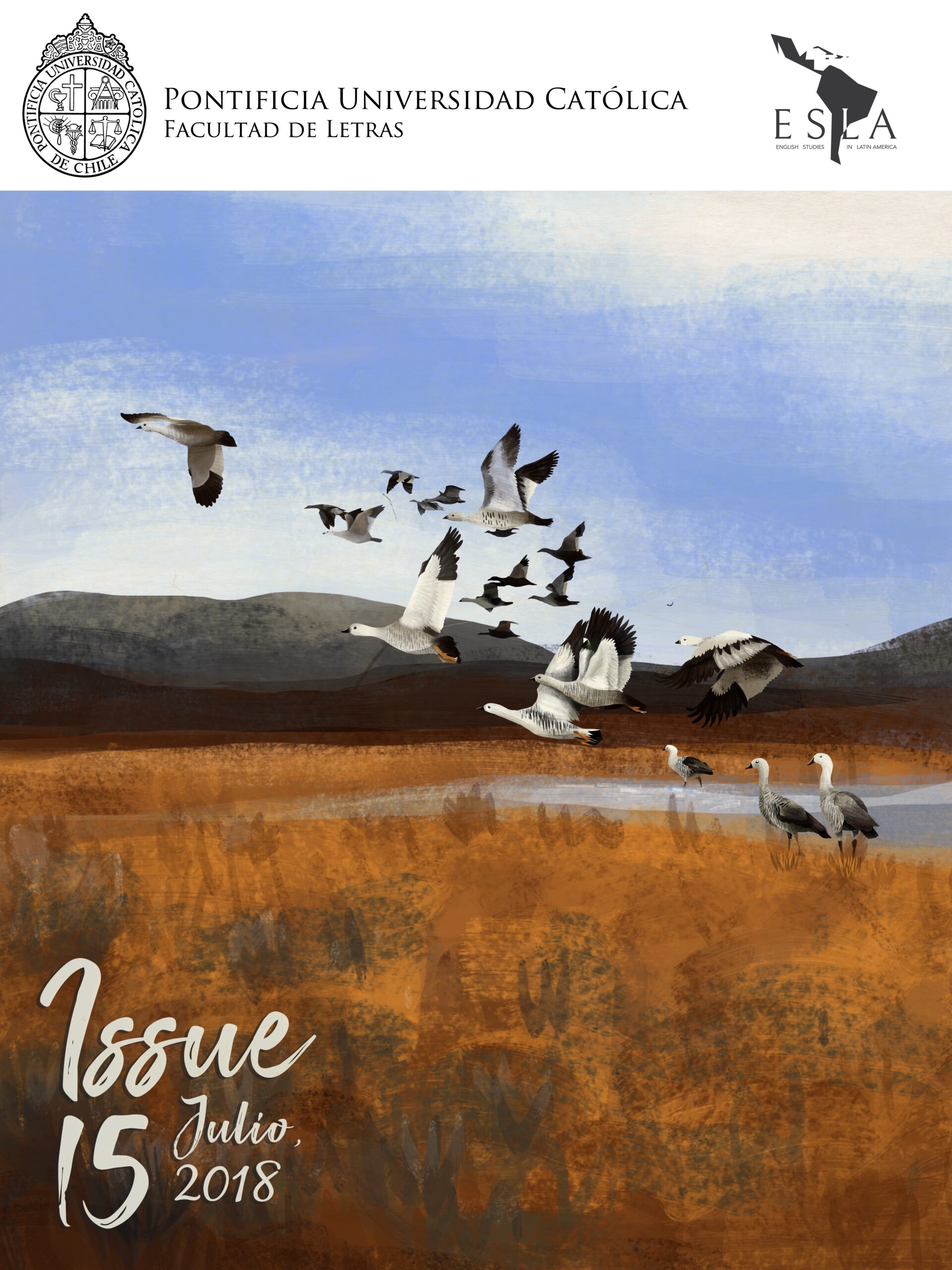
| Editor’s Note | Dear Readers, Our 15th issue of English Studies in Latin America opens with an illustration of geese “saying goodbye”, an image expressed in Graciela Huinao’s poem “Los gansos dicen adios”, translated by Margaret Towner. The arrival and exit of geese on the pampas parallels the life of the person looking and who will soon be gone forever. Memories of life lived and translation, together allowing us to connect across the borders of a single language, shine through in each section of this issue. [ . . . ] Sincerely, Allison Ramay ESLA Editor | Download PDF |
| Articles | Translating the Poetry of Graciela Huinao: Finding the Authentic Voice Within By Margaret Towner Article This article discusses the translation of literary works by contemporary Latin American women, specifically the poetry of Graciela Huinao, a Mapuche-Williche writer from Southern Chile. Given the opportunities for travel and the development of technology such as the Internet, translators today have many ways to interact with writers in order to delve deeper into the translation of their texts. In this context, elements such as hybridity, heteroglossia, paradox, grammatical structures, cultural nuances, and the author’s intention can be explored in greater detail. The translation of Graciela Huinao’s poetry by the author of this article is used to share examples of the exploration of literary and conceptual elements through the use of extensive communications enabled by technology. And in the case of Graciela Huinao’s writing, the relevance and overlapping of Spanish and Mapuzugun, the language of her people, becomes a significant part of the dialogue. Key words: Contemporary translation, Graciela Huinao, hybridity, technology, Mapuche, women writers | Download PDF |
| Articles | Building intertextuality in the classroom: approaching Edgar Allan Poe through literary and non-literary resources By Julio Uribe Ugalde Article Due to overexposure to technology, teaching literature to teenagers has become a pedagogical challenge in today’s educational context. This article proposes a method to bridge the gap between readers and texts by using literary and non-literary resources as an approach to intertextuality. This method will be explained by using American writer Edgar Allan Poe’s works “The Fall of the House of Usher” (1839), “The Tell-Tale Heart” (1843) and “The Raven” (1845). Key words: Intertextuality, Poe, music, television, literature | Download PDF |
| Non-Fiction | Celebración Día del Libro. 25 de abril de 2018. Actividad organizada por la Vocalía de Cultura y Comunidad del CEL de la Facultad de Letras By Sebastián Schoennnenbeck Grohnert Non-Fiction Dado que esta instancia es una celebración y dado que he aceptado esta invitación libremente, quisiera hablar sobre un libro que fue importante para mí, no como un lector especialista, sino como el lector común que todos somos o fuimos alguna vez. En este sentido quisiera hablar de los efectos o de las inquietudes que despertó en mí la lectura de la novela To the Lighthouse, Al faro, de la escritora inglesa Virginia Woolf publicada en 1927. Este ejercicio de lectura está, como todo, mediado por el tiempo. Leí por primera vez la novela a los veinte años. Hoy trato de recordar, más que la obra, una lectura juvenil cuando ya estoy en la mediana edad, es decir, se trata de un ejercicio autobiográfico por medio del registro de lecturas del pasado. [ . . . ] | Download PDF |
| Non-Fiction | A Great Amnesia: On Eastern Spirituality in the Work of Gabriela Mistral By Jessica Sequeira Non-Fiction Philosophical nostalgia can look toward the past, in the belief that some better or more authentic alternative exists, with ideals that have been lost or neglected but to which return might be possible. This is the lost innocence of the mystic poets and primitive painters, who longed for an unspecified Arcadia that drew its imagery from the “before” rather than the “yet to come”. Yet precisely what sacredness or mythical version is being remembered with such wistfulness? The answer is not evident; indeed, this kind of nostalgia often remains vague, its blurred focus forming part of its attraction as an alternative to the overly sharp reality of the present. [ . . . ] | Download PDF |
| Fiction | Selected Poems By Peggy Aylsworth Fiction | Download PDF |
| Fiction | Mathematics By Roberto Rivera Vivencio Translated by James Kelly Fiction | Download PDF |
| Fiction | Selection of Poems By Feliciano Sánchez Chan Translated by José F. Bañuelos-Montes & Sally Perret Fiction | Download PDF |